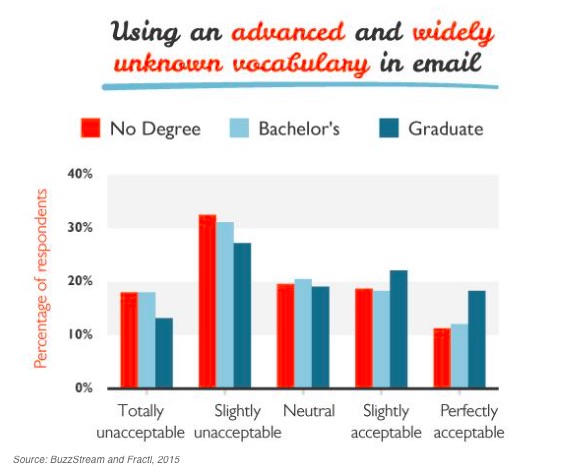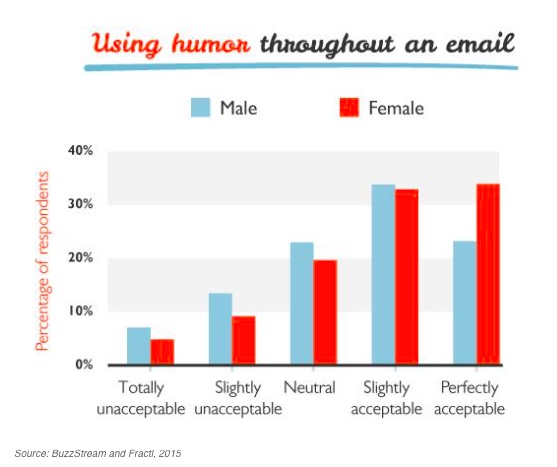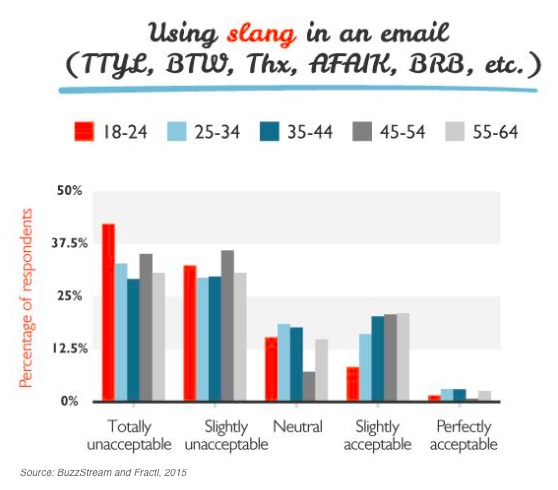Do consumers like humor in marketing emails? Do they prefer formal or informal language? Is it acceptable to include the occasional "LOL" and "BTW"?
BuzzStream and Fractl recently set out to answer such questions by surveying 1,200 people between the age of 18 and 64 about out their email etiquette preferences. The researchers segmented the findings by gender, age, and level of education to see how demographic factors influence preferences.
Below, key findings from the report.
Formality and Vocabulary
Respondents say an email written in a formal tone conveys that the sender is "intelligent," "educated," and "authoritative"; an email written in an informal tone conveys that the sender is "young," "funny," and "creative."
Men find formal language to be more persuasive than women do; men also find formal emails to be more authentic (17% vs. 10%).
Some 45% more women than men say informal emails are more authentic; women also tend to say the sender of an informal email is younger and more reliable.
More than 25% of people of every educational level surveyed—those with graduate degrees, bachelor's degrees, and no degrees—say using advanced and widely unknown vocabulary in emails is "slightly unacceptable."
Graduate degree holders is the only group in which more than 20% of respondents say using advanced vocabulary is acceptable.

Humor
More than 50% of respondents say humor is acceptable to use throughout emails, though women enjoy lighthearted emails more than men.

Slang
A majority of every age group surveyed thinks the use of slang such as "TTYL" and "BTW" is unacceptable to some degree in emails.
The youngest demographic surveyed dislikes slang the most: More than 40% of respondents 18-24 find its use "totally unacceptable."

About the research: The report was based on data from a survey of more than 1,200 people between the age of 18 and 64.




